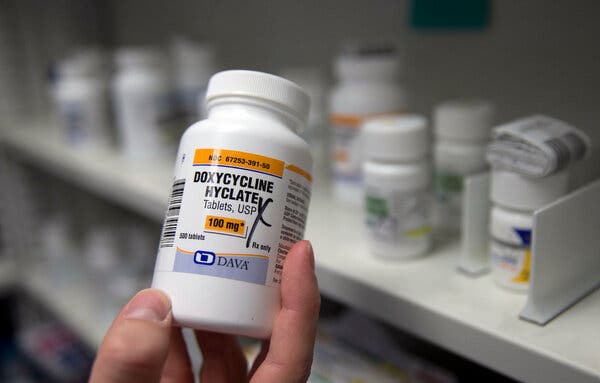New cases fell by half in just over a year, San Francisco health officials reported.

Reporting from the Conference on Retroviruses and Opportunistic Infections in Denver.
A single dose of doxycycline, a widely used antibiotic, taken after sex halved the incidence of chlamydia and early syphilis among gay and bisexual men and transgender women in San Francisco, city health officials announced on Monday. The findings offered a glimmer of hope amid a rising tide of sexually transmitted infections nationwide.
The strategy is called doxy-PEP, shorthand for doxycycline post-exposure prophylaxis. In San Francisco, gay and bisexual men and transgender women who had a history of S.T.I.s or multiple sex partners were given a supply of the antibiotic and asked to take two 100-milligram pills within 72 hours of unprotected sex.
New cases of chlamydia and early syphilis — but not gonorrhea — dropped over the course of about a year. The results were presented at the Conference on Retroviruses and Opportunistic Infections in Denver.
“It’s not subtle, it is very fast and we’re seeing the beginning of it, not the end,” Dr. Hyman Scott, a medical director at the San Francisco Department of Public Health, said in an interview. “This is what we want for S.T.I. prevention.”
Strategies to stem S.T.I.s are sorely needed.
Syphilis, once nearly eliminated in the United States, has reached the highest rate of new infections recorded since 1950, the Centers for Disease Control and Prevention reported in January. Left untreated, syphilis can damage the heart and brain and cause blindness, deafness and paralysis.
Rates of chlamydia remained flat nationwide in 2022, compared with the number in 2021, but at nearly 1.7 million cases, infections were common. (Gonorrhea cases decreased in 2022, but experts cautioned that the trend might have been the result of a decrease in testing.)

